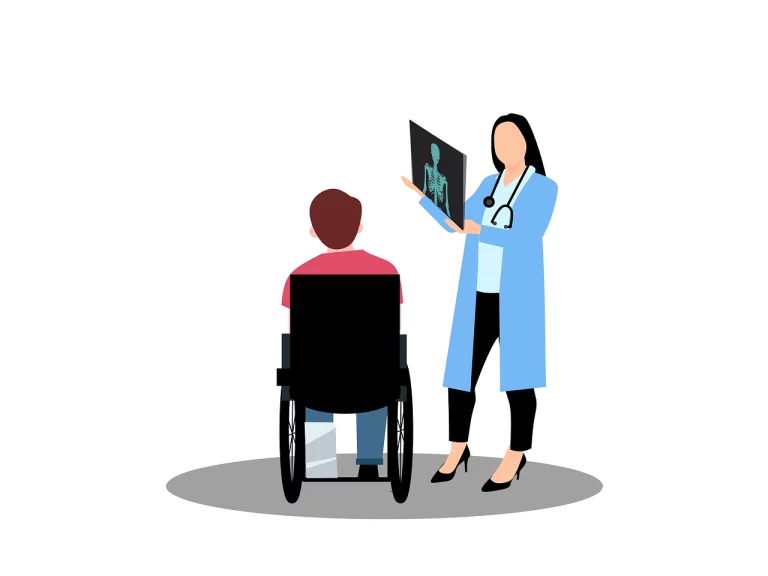Book Appointment Now

Ethical Considerations When Working with Vulnerable Populations
Healthcare providers often encounter patients from diverse backgrounds, including vulnerable populations that may face additional challenges in accessing care or advocating for their needs. Ethical considerations when working with vulnerable populations are essential to ensure that these groups receive equitable, respectful, and compassionate care. Vulnerable populations include individuals who may be at increased risk due to socioeconomic status, disability, chronic illness, age, mental health conditions, or other factors. This article explores the ethical challenges of working with vulnerable populations and provides strategies for healthcare professionals to address these challenges effectively.
Get a custom nursing essay about Ethical considerations when working with vulnerable populations assignment
Order Custom Nursing Essay
Who Are Vulnerable Populations?
Vulnerable populations include groups of people who experience greater obstacles to health and well-being due to economic, social, environmental, or health-related factors. These populations may have limited access to healthcare services and face systemic barriers that prevent them from receiving appropriate care.
Examples of Vulnerable Populations:
- Low-income individuals: Patients living in poverty often lack access to adequate healthcare, nutritious food, and stable housing.
- Elderly patients: Older adults may face age-related health issues, limited mobility, or isolation, which can impact their care.
- People with disabilities: Patients with physical or intellectual disabilities may face discrimination or difficulty accessing care.
- Mental health patients: Individuals with mental health conditions may experience stigma and challenges in receiving appropriate mental health care.
- Racial and ethnic minorities: Historically marginalized communities often face healthcare disparities due to systemic racism, language barriers, and lack of cultural competence in healthcare settings.
Ethical Principles in Working with Vulnerable Populations
When working with vulnerable populations, healthcare professionals must navigate various ethical principles to ensure fair and compassionate treatment. These principles guide decisions and actions to protect and empower vulnerable individuals.
1. Respect for Autonomy
Respecting a patient’s autonomy is a key ethical principle in healthcare. However, when working with vulnerable populations, this principle can be complicated by factors such as cognitive impairments, limited health literacy, or language barriers. Despite these challenges, it is essential to uphold each patient’s right to make informed decisions about their own care.
Ethical Considerations:
- Informed consent: Ensure that patients fully understand the treatment options, risks, and benefits, and that they can make informed decisions without pressure.
- Communication: Use clear, culturally sensitive language to explain treatment plans and medical conditions. In some cases, interpreters or additional resources may be needed to support patient comprehension.
2. Justice
The principle of justice requires that all individuals receive fair and equal access to healthcare services, regardless of their background. Unfortunately, vulnerable populations often face healthcare disparities due to social determinants such as income, education, or geographic location.
Ethical Considerations:
- Equitable care: Ensure that healthcare services are distributed fairly, and that vulnerable populations have access to the same quality of care as others.
- Addressing disparities: Advocate for policies and practices that reduce healthcare disparities, such as increased access to preventive care or support services for underserved communities.
3. Beneficence and Nonmaleficence
The principles of beneficence (promoting the well-being of patients) and nonmaleficence (avoiding harm) are central to ethical nursing practice. When caring for vulnerable populations, healthcare providers must be especially attentive to these principles, as these patients are often at a higher risk for adverse health outcomes.
Ethical Considerations:
- Patient-centered care: Provide care that is tailored to the specific needs of vulnerable individuals, focusing on improving their health and well-being.
- Avoiding harm: Be aware of the systemic barriers that could negatively affect vulnerable patients, such as long wait times, lack of access to necessary treatments, or discriminatory practices, and work to mitigate these risks.
4. Confidentiality and Privacy
Protecting patient confidentiality and privacy is a fundamental ethical obligation in healthcare. Vulnerable populations may have heightened concerns about privacy, particularly in cases involving sensitive topics such as mental health, HIV status, or immigration status.
Ethical Considerations:
- Protecting patient information: Ensure that personal health information is safeguarded and that privacy is maintained, especially when working with populations that may be mistrustful of healthcare institutions.
- Discretion in sensitive cases: Be mindful of the specific risks that vulnerable patients may face if their private information is disclosed, and take extra steps to protect their confidentiality.
Challenges in Providing Ethical Care for Vulnerable Populations
Healthcare professionals working with vulnerable populations often face unique challenges that can complicate the delivery of ethical care. Addressing these challenges requires a thoughtful approach that combines compassion, advocacy, and a commitment to social justice.
1. Health Literacy and Communication Barriers
Vulnerable populations may have limited health literacy or face language barriers that affect their ability to understand medical information and treatment options. This can make it difficult for healthcare providers to ensure informed consent and patient engagement.
Strategies for Overcoming Barriers:
- Use plain language: Avoid medical jargon and explain healthcare concepts in simple terms.
- Cultural competence: Be sensitive to cultural differences that may impact communication and decision-making. Providing language translation services and culturally relevant information can help bridge communication gaps.
2. Bias and Discrimination
Implicit bias or systemic discrimination within the healthcare system can result in unequal treatment of vulnerable populations. Patients from marginalized groups may feel that their concerns are not taken seriously, leading to mistrust and reluctance to seek care.
Strategies for Addressing Bias:
- Reflect on personal biases: Healthcare professionals should engage in self-reflection to recognize and mitigate their own biases.
- Diverse healthcare teams: Advocate for diverse, culturally competent healthcare teams that reflect the populations they serve.
3. Resource Limitations
Limited resources, such as lack of access to healthcare facilities, medications, or support services, can disproportionately affect vulnerable populations. These limitations often create ethical dilemmas for healthcare providers who may feel that they are unable to provide the best possible care.
Strategies for Navigating Resource Limitations:
- Advocacy: Nurses and healthcare providers should advocate for improved healthcare policies that address resource disparities and expand access to care.
- Community partnerships: Work with community organizations to connect vulnerable patients with social services and resources that support their healthcare needs.
The Nurse’s Role in Ethical Care for Vulnerable Populations
Nurses are often at the forefront of patient care, and they play a critical role in addressing the unique needs of vulnerable populations. By providing culturally competent care, advocating for patient rights, and working to reduce healthcare disparities, nurses can ensure that vulnerable patients receive ethical, compassionate care.
Key Responsibilities for Nurses:
- Advocate for patients: Ensure that vulnerable patients have a voice in their care, and work to protect their rights in healthcare settings.
- Educate and empower: Provide patients with the information and resources they need to make informed decisions about their health.
- Collaborate with interdisciplinary teams: Work with other healthcare providers and community organizations to ensure comprehensive care for vulnerable patients.
Ethical considerations when working with vulnerable populations are essential for delivering equitable and compassionate care. By respecting autonomy, ensuring justice, promoting beneficence, and protecting confidentiality, healthcare professionals can address the unique needs of disadvantaged groups. Nurses, in particular, play a vital role in advocating for vulnerable patients and working to reduce healthcare disparities. Understanding the ethical challenges in caring for vulnerable populations allows healthcare providers to offer patient-centered care that promotes dignity, respect, and fairness.
Also read:
- NUR 533 Vulnerable Populations and Health Disparities
- NUR 533 Discussion Population Based Health Disparities
- NURS 540 Things Learned About Two Different Vulnerable Populations
- NU 629 Week 4 Discussion Pros and Cons to Delivering Community-Based Participatory Care to Those Who Are Vulnerable







